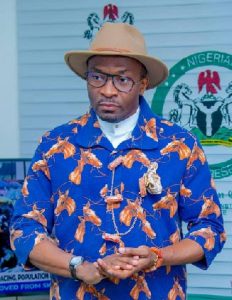Ben Kalu, the deputy speaker of the House of Representatives, has looked to collaborate with Rwanda and Australia in order to increase the number of women in mining, security, and government, among other fields.
At the National Assembly in Abuja on Thursday, Kalu made the request in separate sessions with the delegations of the two nations’ embassies, which were led by Christopher Bazivamo from Rwanda and Leilani Bin-Juda from Australia.
Nigeria has abundant natural resources, he informed the group, and the mining industry has enormous growth and development potential.
Recognizing Australia’s mining know-how, Kalu looked to cooperate in order to exchange technologies, sustainable resource extraction techniques, and best practices.
He called on Australian allies to back Nigeria’s constitutional revision, emphasizing human rights and gender equality.
The team was also told by the deputy speaker that talks are still going on to reexamine the death penalty in Nigerian law. He told the delegation that Nigeria is now debating whether to amend its laws to include the death penalty.
He emphasized that the matter is complicated and requires careful thought and deliberation.
He also discussed how crucial it is to establish an atmosphere that encourages foreign investment in Nigeria’s mining industry.
According to him, in order to foster growth and development on both sides, the environment should not only be attractive to investors but also guarantee that local residents receive real advantages from mining operations.
We can increase the generation of jobs, strengthen local economies, and make sure that our natural resources support Nigeria’s overall growth by fostering collaborations with Australian mining businesses.
Significant constitutional revisions that aim to solve urgent societal challenges are presently being worked on by the Constitution Review Committee.
“Among these are the Gender Bills, specifically HB.1349, which addresses the reservation of seats for women in our legislative bodies.
“This initiative is crucial for enhancing women’s representation in governance, which is essential for a balanced and equitable society,” Kalu concluded.
The Australian High Commissioner, Leilani Bin-Juda, reiterated her country’s interest in Nigeria’s mining, trade, and investment sectors.
She also commended Nigeria, noting fruitful discussions with the Ministry of Foreign Affairs in January, and plans for a joint mining project with the Ministry of Mines and Steel in the coming weeks.
While addressing the Rwanda delegation, Kalu sought stronger ties between Nigeria and Rwanda, citing shared goals of peace, stability, and development.
He said, “The bonds we have forged over the years are proof of our mutual respect and understanding, and I am optimistic about the potential that lies ahead.”
He stressed the importance of inter-parliamentary collaboration in deepening bilateral relations and driving regional development.
“Legislative bodies in our countries are instrumental in shaping policies that promote economic growth, social development, and cultural exchange. By enhancing dialogue between our parliaments, we can ensure that our legislative frameworks align with our shared goals and aspirations.
“In particular, as Nigeria embarks on a significant constitutional review process, we seek collaboration and insights from Rwanda, especially in key thematic areas such as gender and security.
“We can learn a lot from your country’s remarkable progress in gender representation, as women hold the highest percentage of seats in the Senate (53.8%) and the Chamber of Deputies (63.75%), which is the highest in the world,” the deputy speaker stated.
In his speech, Rwandan Ambassador Christophe Bazivamo suggests collaboration in oversight, law drafting, parliamentary technology, and a parliamentary friendship group as ways to improve institutional ties between Rwanda’s legislative bodies and Nigeria.





